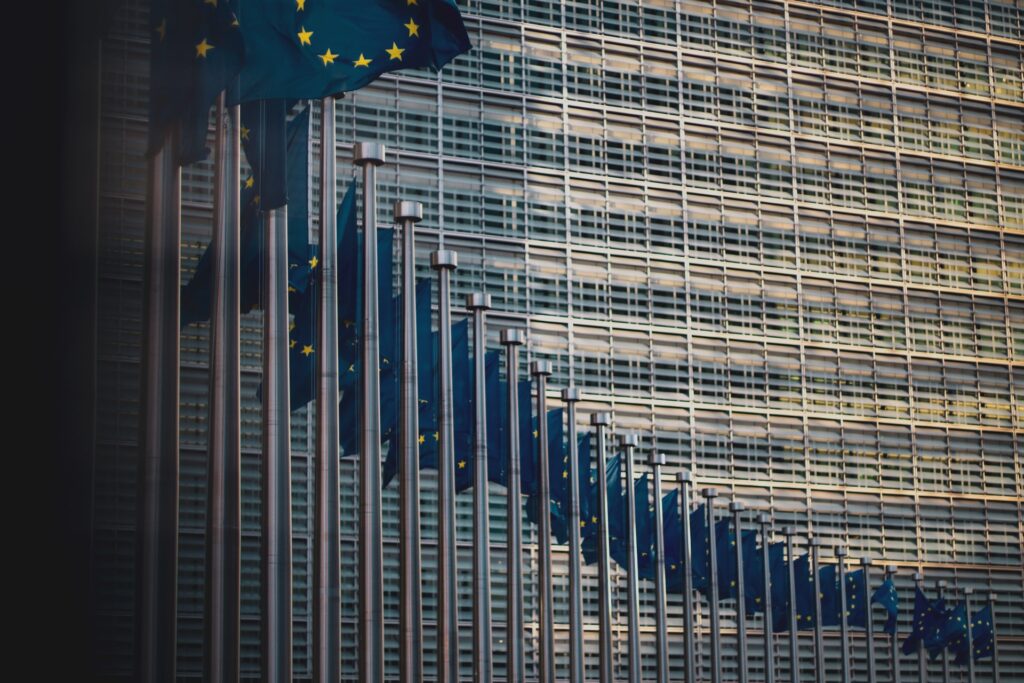The Digital Markets Act (DMA) establishes criteria for qualifying large online platforms as so-called gatekeepers, a metaphor for internet monopolies, which keep their data and services locked up for the outer world and only grant access if users comply with their unfair terms of services. This act will essentially prohibit these corporations from abusing their market power.

Goals of the DMA and how they will be achieved
The general goals of the DMA are:
- A fairer business environment for companies interacting with and depending on gatekeepers.
- New opportunities for technology start-ups to compete with established online platforms.
- Consumers will have more and new opportunities. They can freely choose their favorite providers.
- Gatekeepers will be kept from using unfair practices by abusing their market power.
The gatekeepers will be confronted with a list of new obligations and laws, including:
- Prohibition of combining data collected from two different services, i.e. the exchange of data between Facebook and WhatsApp.
- Provisions for ensuring interoperability, portability, and access to data for end-users of any platform. This specifically includes interoperability between instant messengers, such that users of different instant messengers can communicate freely with each other.
- A ban on behavioral targeting of ads to minors and general restriction of behavioral targeting, such as limiting the data that is allowed to be used for it.
- Restriction of self-preferencing methods used by platforms for promoting their products, i.e. Amazon listing their products, such as FireTV and Kindle, above products of competitors.
- Restriction of pre-installation of some services, such as Google Play Services on Android.
Identifying the gatekeepers
To qualify as a gatekeeper, an online platform must have €8 billion in annual turnover in the European Economic Area (EEA) and a market capitalization of €80 billion. Further, a gatekeeper would need to provide a core platform service in at least three EU countries and have at least 45 million monthly end users, as well as more than 10000 business users.

As of now, the EU identified Google, Apple, Facebook, Amazon, Microsoft, Airbnb, and Booking.com as gatekeepers.
Current status of the DMA proposal
The proposal has been submitted by the European Commission to the European Parliament and to the Council of the European Union on December 15, 2020. It has been adopted this week on November 24, 2021, by the Internal Market and Consumer Protection Committee with an overwhelming majority. It is due to be voted on in plenary in December 2021. The negotiations with EU governments are planned to start in the first half of 2022. Experts state the regulation could be fully implemented in 2023. So there is still a long way to go but it is already relatively clear that the regulation will come into effect at some point.
How interoperability could be technically achieved
It was proposed to use Messaging Layer Security (MLS) for communication between instant messengers services. The protocol is currently in development by the Internet Engineering Task Force (IETF). It is a security layer for end-to-end encrypted messaged in arbitrarily sized groups and is designed to be efficient, practical, and secure. There are already implementations of the protocol available for several programming languages.

The DMA could either force gatekeepers to implement MLS or to implement an adapter to their own protocols and then provide an interface, such that other services can communicate in MLS with this interface.
Though MLS will only solve one part of the problem. Where semantical interoperability in messengers might be easy to achieve since they are all somewhat semantically identical, this will constitute an increasingly difficult task for social media services. Instant messengers all operate on similar semantical objects, i.e. users, text messages, images, videos, audio files, and so on. Those can be easily bridged across networks.
With social media, on the other hand, we are confronted with services using entirely different objects and representations. A Twitter profile for instance contains only a fracture of information of what a Facebook profile contains. This challenge will lead to increased importance of ontologies like FOAF and SIOC, as well as social semantic mapping technologies in general.
A brighter future for end-users
Since no other legislation on this planet seems to care, the EU needs to step in again to keep internet corporations in check. Although the introduction of the GDPR can be generally considered a large success for society, there is no way to actually enforce it. We simply do not know what companies like Facebook do with our data and for how long they store them. The EU’s second strike, the DMA, will solve this issue once and for all. It will bring back freedom to the internet by preventing gatekeepers to abuse their market power.
Technically speaking, the DMA will essentially force instant messengers, such as WhatsApp, into a federated network. People will no longer be forced into the WhatsApp network because its network effect will simply cease to exist.
Obviously, the EU does not only have end-users in mind. The established American internet corporations not only abuse their users but constantly find new loopholes for tax evasion. Hence the DMA is further supposed to strengthen European competitors in the global market, which are more likely to adhere to the law, also because the EU has better measures to enforce the law on them.